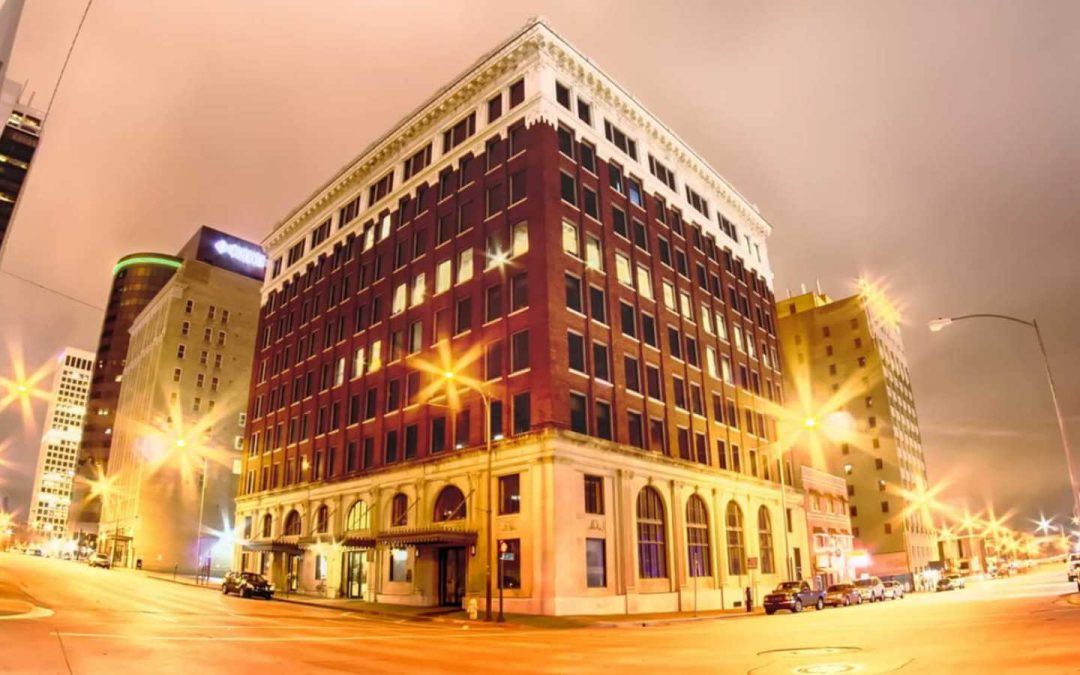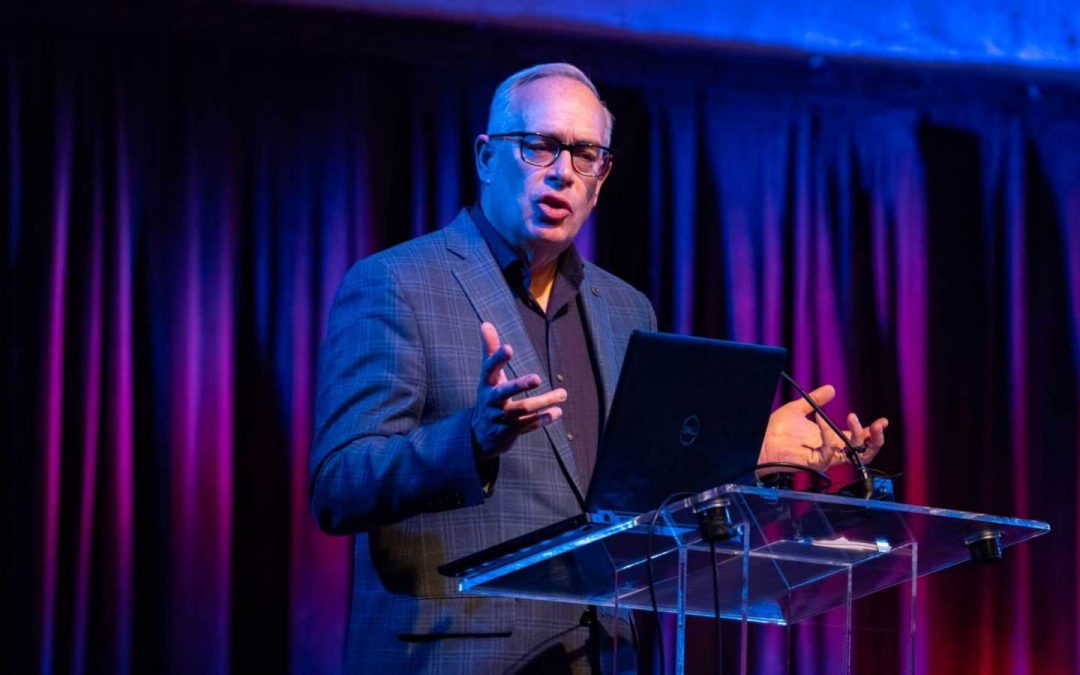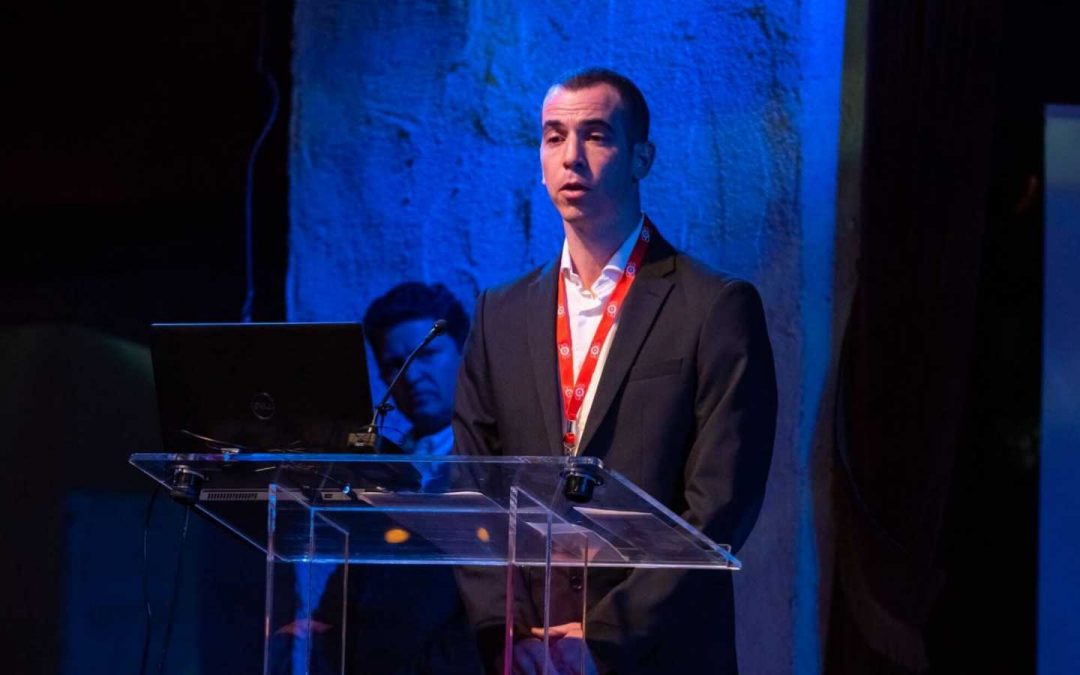Kevin Hern, U.S. Congressman | Tulsa COG2019
Transcript:
Thanks, Clint. I appreciate that little longer introduction, too — that was great. I know Chuck — he probably would have said something a little longer. But it’s great to be with you. It’s great to be a part of this inaugural event with the Center of Gravity 2019. You know, I ran on the premise of getting the government out of the way of people who had ideas, starting businesses, and putting Americans to work and that really is truly important to me here in the First District Tulsa area. And my background is in mechanical engineering, as Clint mentioned, an entrepreneur for 34 years, many, many startups. Owner currently — still an owner in three different technology companies, and I also sit on the congressional small business committee in Washington DC. It’s important to me what you all are doing or starting to do is just tremendously important to me. Also [I have] two sons that are pursuing cybersecurity degrees — one at OSU and the other one in Georgetown in a Master’s program.
So, I love technology. I think it’s what makes people different. I’m okay with being called a geek. It’s not a problem. If that’s, that’s what we need to be called to move America forward, that’s perfectly fine with me. As an angel funder in many startups, I know how valuable events like today are. In fact, I saw everybody talking and sharing ideas and I think that’s really important — to connect people with ideas to leaders and institutions that can transform dreams into realities.
One such area, as I just mentioned, is cybersecurity, both in commercial and defense areas. And I want to talk to you about that just a little bit because everybody thinks of technology being cyber. But it has a lot to do in everything that we’re talking about in our many defense industries and our commercial and industry as well. I like to talk about a strong national economy. It’s critical to a strong national defense. So, whether you are a person who wants to be engaged in the world of defense or not, creating a strong economy, a safe economy, where we can do all of our business through the interactions of the internet is truly important to what we do because as many classified briefings that I’ve been in, the one thing I can tell you is everybody believes the next attack — true attack on America will be from cyber. And most likely cyber from outer space. In other words, our Space Force that we’re talking about. Everything that we’ll do, we’ll have to have some kind of data integrity cybersecurity mitigation.
The threat to our economy is real. According to a recent study, many of you may have seen this on CNBC, a cyber breach costs the average small business about $200,000 per incident, leaving 60% of those that go out of business within six months of the attack. I know personally have many companies around here that have had malware, ransomware-type of attacks and it’s different. It’s much more sophisticated today as many of you know. Knowing how much that used to cost you $500, or, you know, Bitcoins and now it’s based on how much interaction you have with the different entities you have. Also as I was telling some folks a few minutes ago, that a lot of the attacks today are not on the major defense companies themselves, or not on the financial institutions themselves. They’re through back doors too many people like you that start up your companies that leave that interaction between your main companies wide open. And the hackers from around the world, a rogue entity or rogue person, looks for folks like yourself as you’re starting up, not being secure. So, security, the data integrity to cyber threats are immense. They’re growing every day, and are the real and alive here in Tulsa.
43% of all attacks are aimed at small business. Only 14% are prepared. That’s according to a censure. More than half of all small businesses suffered a breach just last year, so put that in perspective; there are 28 million small businesses in America. So, roughly 14 million small businesses in America had a cyberattack last year of some sort.
So, I would love to tell you that the government has all figured out but they don’t. They’re working hard, but what that always looks like, as many of you all know, is when you have a hodgepodge of laws. And we all know what’s going on in California right now in New York — they’re creating data metrics that are looking at the non-uniform laws out there. If you look at California — so stringent in the disclosure that it’s almost impossible to do business. That’s the standards being promulgated across the country. So, in Congress, we’re working on that. We had actually had a big hearing on this about three weeks ago in Baltimore about how we could do better at creating a national standard so that we could all work under that one standard.
If you look at what’s happening in Europe, with the GDPR, the same thing there, it’s becoming so stringent, it’s almost impossible to do business in the EU. So, we have a real accelerated threat that everybody’s trying to get around. Congress is working hard on that, which is what we want them to do on the various committees, especially on Energy and Commerce and Small Business to make sure that our businesses are protected with a single standard. And we want to make sure that, again, that it’s a rule and regulations and laws that we can actually conform to, that don’t make it so impossible, as I mentioned in my opening statement, the Federal government gets so involved, that there’s no way unless you’re a big company, that you can startup. So, it’s always that fine balance of protecting the 330 million pieces of people’s data in America, but also making it so that we can start up and create new businesses.
So, with that, I’d like to leave it as a big thank you. It’s great to see everybody here today in Tulsa, Oklahoma and the folks that flew in from around the country and around the world to be a part of this. We really want to especially thank Dr. Clancy for what the University of Tulsa is done for many years in the world of cyber. Many of you all know and the three years of cyber they compete in, they have tremendous respect in Fort Meade and the national security of our country. We really appreciate what the University of Tulsa has been and how they continue to do that and an integral part of what they’re going to be in the future. So, I look forward to seeing what the outcomes are. Thank you all for being here. Thanks for having me. I appreciate it.
Learn more about the Tulsa Center of Gravity (COG) Group here.









